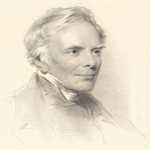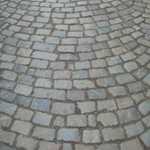 stoop
stoop /ˈstuːp/
stoop
stoop /ˈstuːp/
noun
-
(
 )
An inclination of the top half of the body forward and downward
)
An inclination of the top half of the body forward and downward  (
stoop
)
(
stoop
)
an inclination of the top half of the body forward and downward
-
[ N. American]
Small porch or set of steps at the front entrance of a house
 (
stoep
[South Africa] , stoop
[ N. American] )
(
stoep
[South Africa] , stoop
[ N. American] )
small porch or set of steps at the front entrance of a house
-
Basin for holy water
 (
stoop
, stoup
)
(
stoop
, stoup
)
basin for holy water
verb
-
(
 )
Bend one's back forward from the waist on down
)
Bend one's back forward from the waist on down  (
bow
, bend
, stoop
, crouch
)
(
bow
, bend
, stoop
, crouch
)
bend one's back forward from the waist on down
 He crouched down
He crouched down
he crouched down
 She bowed before the Queen
She bowed before the Queen
She bowed before the Queen
 The young man stooped to pick up the girl's purse
The young man stooped to pick up the girl's purse
The young man stooped to pick up the girl's purse
-
Carry oneself, often habitually, with head, shoulders, and upper back bent forward
 (
stoop
)
(
stoop
)
carry oneself, often habitually, with head, shoulders, and upper back bent forward
 The old man was stooping but he could walk around without a cane
The old man was stooping but he could walk around without a cane
The old man was stooping but he could walk around without a cane
-
Sag, bend, bend over or down
 (
stoop
)
(
stoop
)
sag, bend, bend over or down
 The rocks stooped down over the hiking path
The rocks stooped down over the hiking path
the rocks stooped down over the hiking path
-
Descend swiftly, as if on prey
 (
stoop
)
(
stoop
)
descend swiftly, as if on prey
 The eagle stooped on the mice in the field
The eagle stooped on the mice in the field
The eagle stooped on the mice in the field
-
Debase oneself morally, act in an undignified, unworthy, or dishonorable way
 (
condescend
, lower oneself
, stoop
)
(
condescend
, lower oneself
, stoop
)
debase oneself morally, act in an undignified, unworthy, or dishonorable way
 I won't stoop to reading other people's mail
I won't stoop to reading other people's mail
I won't stoop to reading other people's mail
 exercise
exercise /ˈɛksɝˌsaɪz/
exercise
exercise /ˈɛksɝˌsaɪz/
noun
-
(
 )
The activity of exerting your muscles in various ways to keep fit
)
The activity of exerting your muscles in various ways to keep fit  (
physical exercise
, physical exertion
, exercising
, exercise
, workout
)
(
physical exercise
, physical exertion
, exercising
, exercise
, workout
)
the activity of exerting your muscles in various ways to keep fit
 The doctor recommended regular exercise
The doctor recommended regular exercise
the doctor recommended regular exercise
 He did some exercising
He did some exercising
he did some exercising
 The physical exertion required by his work kept him fit
The physical exertion required by his work kept him fit
the physical exertion required by his work kept him fit
-
(
 )
The act of using
)
The act of using  (
utilisation
[British] , employment
, exercise
, usage
, use
, utilization
)
(
utilisation
[British] , employment
, exercise
, usage
, use
, utilization
)
the act of using
 He warned against the use of narcotic drugs
He warned against the use of narcotic drugs
he warned against the use of narcotic drugs
 Skilled in the utilization of computers
Skilled in the utilization of computers
skilled in the utilization of computers
-
(
 )
A task performed or problem solved in order to develop skill or understanding
)
A task performed or problem solved in order to develop skill or understanding  (
example
, exercise
)
(
example
, exercise
)
a task performed or problem solved in order to develop skill or understanding
 You must work the examples at the end of each chapter in the textbook
You must work the examples at the end of each chapter in the textbook
you must work the examples at the end of each chapter in the textbook
-
(
 )
Systematic training by multiple repetitions
)
Systematic training by multiple repetitions  (
drill
, recitation
, practice session
, exercise
, practice
)
(
drill
, recitation
, practice session
, exercise
, practice
)
systematic training by multiple repetitions
 Practice makes perfect
Practice makes perfect
practice makes perfect
-
An action, often used negatively and without consequences
 (
exercise
)
(
exercise
)
an action, often used negatively and without consequences
 An exercise in futility
An exercise in futility
an exercise in futility
 An exercise in cheap talk
An exercise in cheap talk
an exercise in cheap talk
-
(usually plural) a ceremony that involves processions and speeches
 (
exercise
)
(
exercise
)
(usually plural) a ceremony that involves processions and speeches
 Academic exercises
Academic exercises
academic exercises
verb
-
(
 )
Put to use
)
Put to use  (
exert
, exercise
)
(
exert
, exercise
)
put to use
 Exert one's power or influence
Exert one's power or influence
exert one's power or influence
-
(
 )
Carry out or practice; as of jobs and professions
)
Carry out or practice; as of jobs and professions  (
practise
, exercise
, practice
, do
)
(
practise
, exercise
, practice
, do
)
carry out or practice; as of jobs and professions
 Practice law
Practice law
practice law
-
(
 )
Do physical exercise
)
Do physical exercise  (
exercise
, work out
)
(
exercise
, work out
)
do physical exercise
 She works out in the gym every day
She works out in the gym every day
She works out in the gym every day
-
(
 )
Give a workout to
)
Give a workout to  (
work out
, exercise
, work
)
(
work out
, exercise
, work
)
give a workout to
 Some parents exercise their infants
Some parents exercise their infants
Some parents exercise their infants
 My personal trainer works me hard
My personal trainer works me hard
My personal trainer works me hard
 Work one's muscles
Work one's muscles
work one's muscles
 This puzzle will exercise your mind
This puzzle will exercise your mind
this puzzle will exercise your mind
-
Learn by repetition
 (
exercise
, practise
[Canadian, British] , drill
, practice
[ N. American] )
(
exercise
, practise
[Canadian, British] , drill
, practice
[ N. American] )
learn by repetition
 We drilled French verbs every day
We drilled French verbs every day
We drilled French verbs every day
 Pianists practice scales
Pianists practice scales
Pianists practice scales







 stoop
stoop /ˈstuːp/
stoop
stoop /ˈstuːp/  )
An inclination of the top half of the body forward and downward
)
An inclination of the top half of the body forward and downward  (
stoop
)
(
stoop
) (
stoep
[South Africa] , stoop
[ N. American] )
(
stoep
[South Africa] , stoop
[ N. American] )
 (
stoop
, stoup
)
(
stoop
, stoup
)
 )
Bend one's back forward from the waist on down
)
Bend one's back forward from the waist on down  (
bow
, bend
, stoop
, crouch
)
(
bow
, bend
, stoop
, crouch
) He crouched down
He crouched down
 She bowed before the Queen
She bowed before the Queen
 The young man stooped to pick up the girl's purse
The young man stooped to pick up the girl's purse
 (
stoop
)
(
stoop
) The old man was stooping but he could walk around without a cane
The old man was stooping but he could walk around without a cane
 (
stoop
)
(
stoop
) The rocks stooped down over the hiking path
The rocks stooped down over the hiking path
 (
stoop
)
(
stoop
) The eagle stooped on the mice in the field
The eagle stooped on the mice in the field
 (
condescend
, lower oneself
, stoop
)
(
condescend
, lower oneself
, stoop
) I won't stoop to reading other people's mail
I won't stoop to reading other people's mail

 Keble
Keble /ˈkiːbəl/
Keble
Keble /ˈkiːbəl/  (
John Keble
, Keble
)
(
John Keble
, Keble
)

 paving stone
paving stone /ˈpeɪvɪŋ stoʊn/
paving stone
paving stone /ˈpeɪvɪŋ stoʊn/  )
A stone used for paving
)
A stone used for paving  (
paving stone
)
(
paving stone
) The old streets were made of uneven paving stone.
The old streets were made of uneven paving stone.


 exercise
exercise /ˈɛksɝˌsaɪz/
exercise
exercise /ˈɛksɝˌsaɪz/  )
The activity of exerting your muscles in various ways to keep fit
)
The activity of exerting your muscles in various ways to keep fit  (
physical exercise
, physical exertion
, exercising
, exercise
, workout
)
(
physical exercise
, physical exertion
, exercising
, exercise
, workout
) The doctor recommended regular exercise
The doctor recommended regular exercise
 He did some exercising
He did some exercising
 The physical exertion required by his work kept him fit
The physical exertion required by his work kept him fit

 )
The act of using
)
The act of using  (
utilisation
[British] , employment
, exercise
, usage
, use
, utilization
)
(
utilisation
[British] , employment
, exercise
, usage
, use
, utilization
) He warned against the use of narcotic drugs
He warned against the use of narcotic drugs
 Skilled in the utilization of computers
Skilled in the utilization of computers
 )
A task performed or problem solved in order to develop skill or understanding
)
A task performed or problem solved in order to develop skill or understanding  (
example
, exercise
)
(
example
, exercise
) You must work the examples at the end of each chapter in the textbook
You must work the examples at the end of each chapter in the textbook
 )
Systematic training by multiple repetitions
)
Systematic training by multiple repetitions  (
drill
, recitation
, practice session
, exercise
, practice
)
(
drill
, recitation
, practice session
, exercise
, practice
) Practice makes perfect
Practice makes perfect
 (
exercise
)
(
exercise
) An exercise in futility
An exercise in futility
 An exercise in cheap talk
An exercise in cheap talk
 (
exercise
)
(
exercise
) Academic exercises
Academic exercises
 )
Put to use
)
Put to use  (
exert
, exercise
)
(
exert
, exercise
) Exert one's power or influence
Exert one's power or influence
 )
Carry out or practice; as of jobs and professions
)
Carry out or practice; as of jobs and professions  (
practise
, exercise
, practice
, do
)
(
practise
, exercise
, practice
, do
) Practice law
Practice law
 )
Do physical exercise
)
Do physical exercise  (
exercise
, work out
)
(
exercise
, work out
) She works out in the gym every day
She works out in the gym every day
 )
Give a workout to
)
Give a workout to  (
work out
, exercise
, work
)
(
work out
, exercise
, work
) Some parents exercise their infants
Some parents exercise their infants
 My personal trainer works me hard
My personal trainer works me hard
 Work one's muscles
Work one's muscles
 This puzzle will exercise your mind
This puzzle will exercise your mind
 (
exercise
, practise
[Canadian, British] , drill
, practice
[ N. American] )
(
exercise
, practise
[Canadian, British] , drill
, practice
[ N. American] ) We drilled French verbs every day
We drilled French verbs every day
 Pianists practice scales
Pianists practice scales

